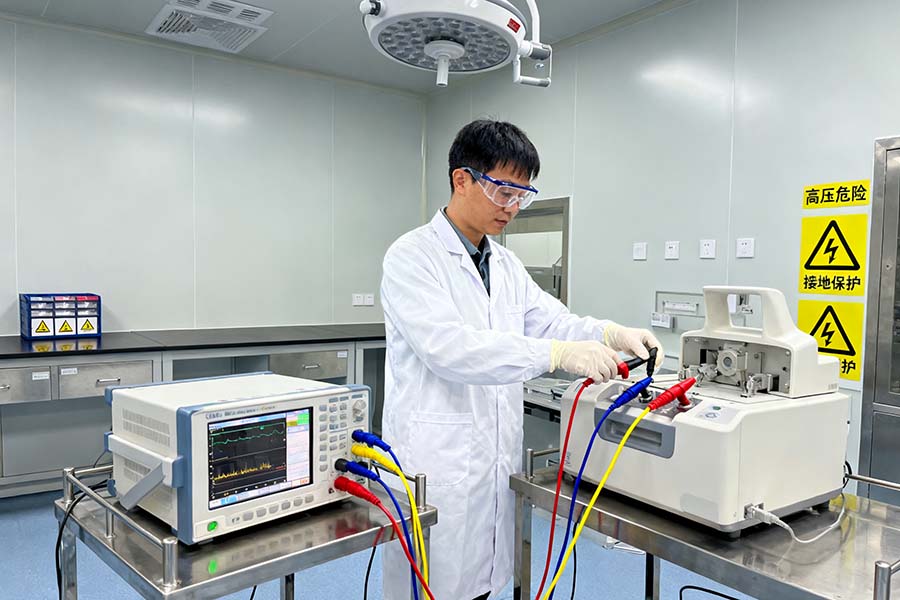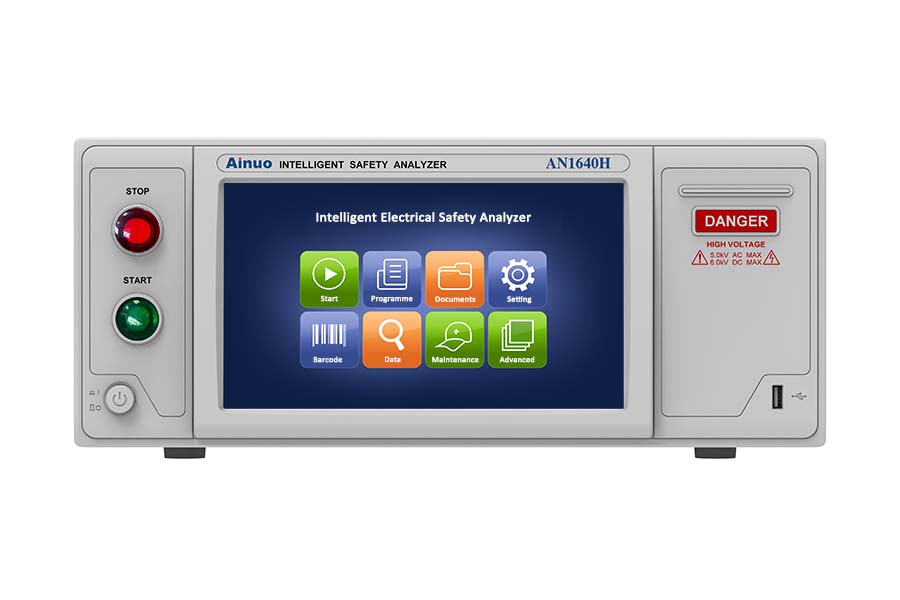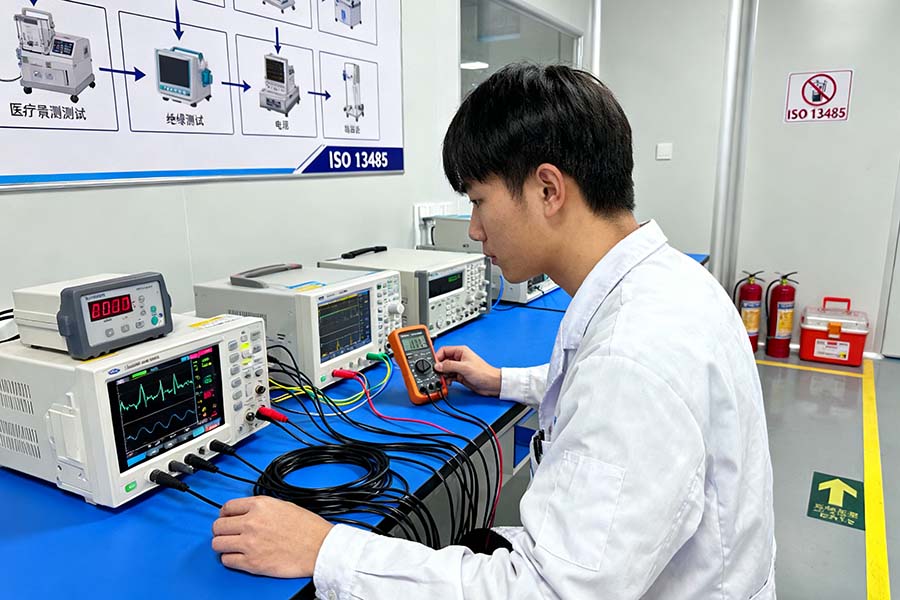If you’re responsible for maintaining medical equipment, you already know the drill: patient safety is non-negotiable. At the heart of a robust preventive maintenance (PM) program lies a critical tool—the electrical safety analyzer (ESA). But with a sea of models from brands like Ainuo, Fluke, Rigel, and Pronk, how do you choose the right one?

The frustratingly accurate answer is: it depends.
The "best" analyzer is the one that perfectly balances your specific equipment inventory, compliance requirements, and budget. Asking which one is best is like asking what the best car is—a Formula 1 team and a family of five have very different needs.
Let's break down the key factors to consider so you can make an informed decision for your facility.
Step 1: Know Your Standards (What Are You Testing For?)
Before looking at any product specs, you must know the standards you need to meet. This is your non-negotiable starting point.
· IEC 60601-1: This is the international standard for the safety and essential performance of medical electrical equipment. Your ESA must be capable of performing the tests outlined here, including:
o Ground Wire (Protective Earth) Resistance: A critical test of the integrity of the grounding path.
o Insulation Resistance: Measures the effectiveness of the insulation between live parts and the chassis.
o Earth Leakage Current: Current flowing from the mains part to the ground.
o Enclosure (Touch) Leakage Current: Current that could flow through a person touching the equipment's enclosure.
o Patient Leakage Current: The most critical for patient-connected devices; measures current that could flow through a patient.
· Local Regulations: Ensure the analyzer is certified for use in your region (e.g., UL listed in the U.S., CE marked in Europe).
Step 2: Evaluate Your Equipment Inventory
The type of equipment you service most often will heavily influence your choice.
· General Biomedical Equipment: For infusion pumps, patient monitors, and beds, a basic ESA that covers the core IEC 60601-1 tests is often sufficient.
· High-Risk & Life Support: For devices like ventilators, defibrillators, dialysis machines, and electrosurgical units, you need an advanced analyzer. Look for features like:
o Defibrillator Testing: Can it safely handle and test the high-energy discharge of a defib?
o ESU (Bovie) Analysis: Specific tests for electrosurgical unit output power, waveform, and isolation.
· Diverse or Specialized Fleet: If your inventory is a mix of everything, a multi-function tester that can also perform performance verification (e.g., pressure, flow, temperature) might be the most efficient choice.
Step 3: Key Features to Compare
Once you know your standards and equipment needs, it's time to compare features.
Feature | Why It Matters | Best For |
Automated Sequences | Pre-programmed test sequences save time, reduce human error, and ensure consistency. | High-volume shops, ensuring compliance. |
Manual Testing | The ability to create custom tests or perform them step-by-step for troubleshooting. | Troubleshooting, testing non-standard devices. |
Data Management | Built-in memory, USB/Bluetooth export, and compatibility with CMMS (Computerized Maintenance Management System). | Audits, tracking equipment history, and paperless workflow. |
User Interface & Display | Is it intuitive? Is the screen easy to read? A clunky interface slows down every PM. | User satisfaction and efficiency. |
Portability & Battery Life | Will you be carrying it across a large hospital campus? Long battery life is a must. | Field service technicians, large facilities. |
Calibration Cycle | A longer calibration cycle (e.g., 2 years vs. 1 year) reduces long-term cost and downtime. | Budget-conscious departments. |
Spotlight on Popular Brands
· Ainuo medical electrical safety analyzer AN1640H-M(F): features complete functions, legal compliance, easy operation, and informatization, suitable for testing medical electrical equipment safety standards.
· Fluke Biomedical (e.g., ESA620, ESA612): Often considered the industry gold standard. Known for robust build quality, reliability, and excellent support. A safe, if sometimes premium-priced, choice.
· Rigel Medical (e.g., Uni-Therm, 288): Gained significant market share by offering fantastic value, intuitive touchscreen interfaces, and versatile multi-function testers. A great balance of features and cost.
· Pronk Technologies: Offers capable and often more affordable options, making them a popular choice for more constrained budgets.

The verdict? You can't go wrong with a Fluke or Rigel for most applications—it often comes down to specific model features and price.
The Budget Question: Cost vs. Capability
An electrical safety analyzer is an investment in patient safety and regulatory compliance.
· Basic Models ($2,000 - $5,000): Handle core safety tests for general equipment.
· Advanced Models ($6,000 - $15,000): Include defibrillator and ESU testing, advanced data management, and automated sequences.
· Multi-Function Testers ($15,000+): Combine electrical safety with performance analysis for ventilators, infusion pumps, and more.
Consider the Total Cost of Ownership (TCO), not just the purchase price. Factor in the cost of accessories, calibration, and potential software subscriptions.
Conclusion: How to Make Your Final Choice
So, which electrical safety analyzer is best for you?
1. Audit Your Needs: List the 10-20 most common devices you test. What specific tests do they require?
2. Check Compliance: Confirm the latest standards your facility must adhere to.
3. Prioritize Features: Do you need automation, data export, or ESU testing? Make a "must-have" vs. "nice-to-have" list.
4. Get a Demo: Don't just read the brochure. Ask for a live demo from vendors. See how the interface feels in your hands.
5. Think Long-Term: Choose a tool that will grow with your department's needs for the next 5-10 years.

The right electrical safety analyzer isn't just a box that spits out a "PASS/FAIL." It's your partner in ensuring a safe clinical environment. By carefully matching the tool to your task, you invest not just in a device, but in peace of mind.




